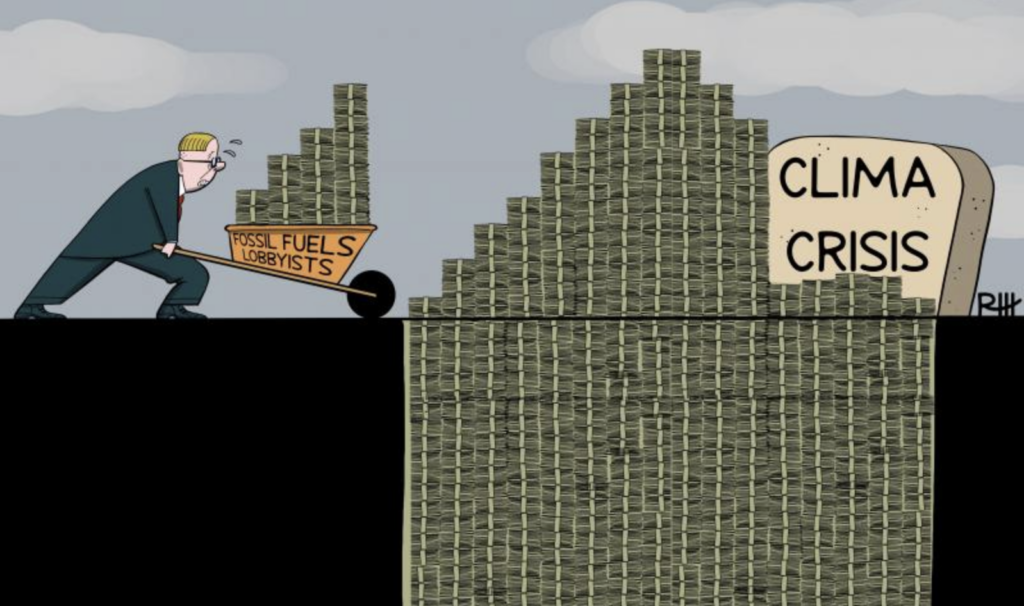UK taxpayers handed big oil companies more than £500 million in 2015, according to new government data.
Analysts say about two-thirds of known fossil fuel resources must remain in the ground if the world is going to hit its climate targets. But the UK government has a generous subsidy system to encourage companies to “maximise economic recovery” in the North Sea.
This is despite falling oil prices and the growth of alternative energy sources, which means the industry contributes increasingly little to the UK economy.
According to new data from the government’s Extractive Industries Transparency Initiative report, BP made around £221 million from taxpayers in 2015.
ExxonMobil received about £215 million from government tax breaks, and Chevron received around £70 million. Statoil, which claims to be a climate leader in the industry, received around £13 million. Royal Dutch Shell received almost £80 million.
HJ Banks, which owns the coal mine on climate science denier Matt Ridley’s estate, paid about £4.5 million in tax in that financial year, according the data accompanying the report.
Analysis by Carbon Brief showed that once all the tax payments and tax breaks were accounted for, the government ended up paying the industry to drill over the course of a calendar year for the first time in 2016.
Richard Dixon, director of Friends of the Earth Scotland, told DeSmog UK:
“In its haste to support the oil industry the UK Government’s tax breaks for production, exploration and decommissioning mean the North Sea is contributing very little to the public purse while continuing to feed climate change.
“The drive to get every last drop of oil out is a disaster for carbon emissions but, ironically, doesn’t even seem likely to help the economy much. It is particularly galling that BP, as one of the very largest operators, ended up with the smallest tax bill.”
BP told Energy Voice that the impact of a low oil price on its profits alongside decommissioning costs reduced the amount of tax it owed. The company said it expected to return to being a net tax payer “within a few years”.
The government continues to find new ways to reward the fossil fuel industry, despite it now being a net drain on the economy.
In the latest Spring budget, the chancellor promised to set up an expert panel to figure out the best way to ensure new, smaller, companies get paid for squeezing the last few drops of oil out of the North Sea.
Reacting to today’s report, WWF Scotland director, Lang Banks, told DeSmog UK:
“We now seem to be in the truly perverse situation in where the UK taxpayer is effectively paying some fossil fuel companies to keep drilling for oil and gas.
“The public should seriously start to question why their money is being to used to support companies that are responsible for accelerating global climate change, when jobs in clean renewables are under threat following changes in support by the UK Government.”
The news came on the same day that BP announced it had sold its Forties pipeline in the North Sea to chemical company INEOS for around £199 million.
The sale is the latest that sees BP shedding North Sea assets as it focuses on cost-cutting in the wake of a more than $50 billion bill to clean up the Gulf of Mexico after the infamous Deepwater Horizon oil spill in 2010.
INEOS needs the pipeline to serve its Grangemouth refinery. The company is leading calls to exempt the chemicals industry from climate policy costs in the wake of Brexit, the Guardian today revealed.
INEOS also holds licenses to potentially frack for shale gas across more than 1.2 million acres in England.
Main image credit: Steven Straiton via Flickr CC BY–SA
Subscribe to our newsletter
Stay up to date with DeSmog news and alerts







